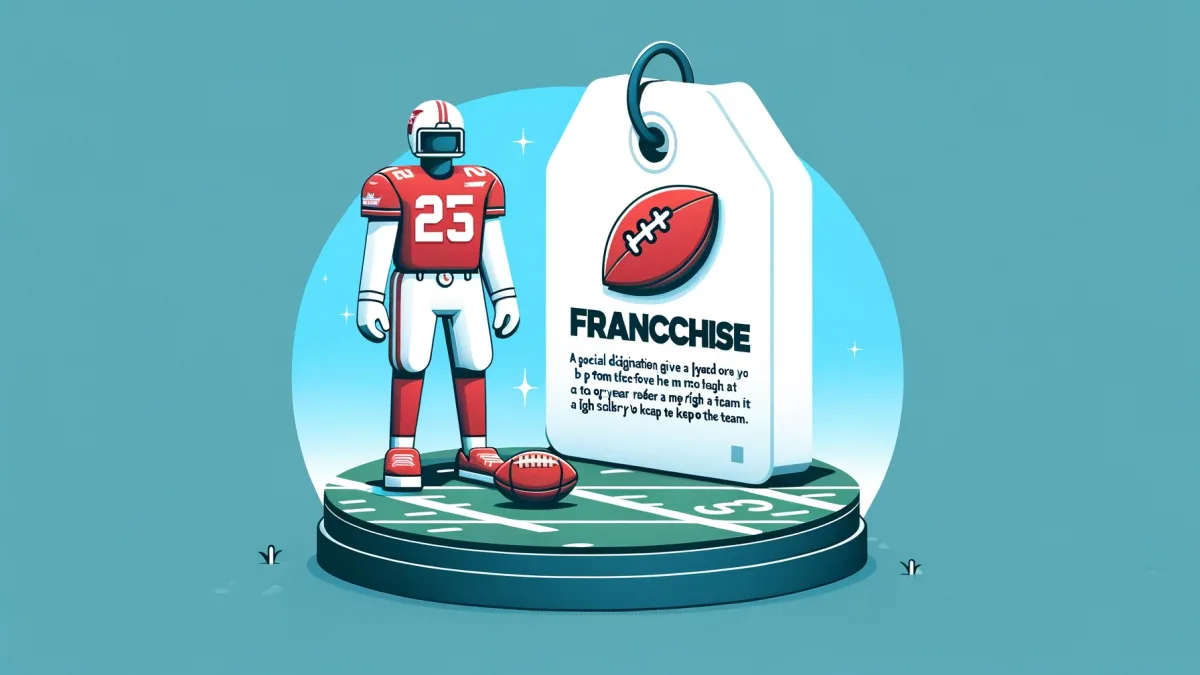Hey there, sports fans! If you’ve ever found yourself in the midst of an NFL conversation, nodding along but secretly wondering what the heck a “franchise tag” actually means, you’re in the right place. It’s a term that gets thrown around a lot, especially during the offseason, and it can be a bit of a head-scratcher. But don’t worry, I’ve got you covered. Let’s break it down, shall we?
What is the Franchise Tag, Anyway?
In the simplest terms, the franchise tag is a tool that NFL teams can use to keep a key player from becoming a free agent. Think of it as the team saying, “You’re too important to let go, so we’re putting a hold on you for now.” It’s like calling dibs on the last slice of pizza, but with million-dollar contracts and the future of your team on the line.
There are actually two types of franchise tags: exclusive and non-exclusive, but we’ll get into that in a bit.
Why Do Teams Use It?
Teams mainly use the franchise tag for two reasons: negotiation and strategy. If a team is struggling to reach a long-term deal with a player, tagging them can buy some time to work things out. It’s also a strategic move to ensure that key players don’t just walk away, leaving a gaping hole in the lineup.
Exclusive vs. Non-Exclusive Tags
- Exclusive Franchise Tag: This is the NFL equivalent of saying, “You’re with us, and only us.” A player with an exclusive tag cannot negotiate with other teams. Their salary is set at the average of the top five salaries at their position for the current year, or 120% of their previous year’s salary, whichever is higher.
- Non-Exclusive Franchise Tag: This one’s a bit more flexible. The player can negotiate with other teams, but their current team has the right to match any offer. If they choose not to match, they receive two first-round draft picks as compensation from the player’s new team. The salary calculation is similar to the exclusive tag but based on the top five salaries from the previous year.
The Impact of the Tag
So, what does this mean for players and teams? For players, it can be a bit of a mixed bag. On one hand, they’re guaranteed a pretty hefty salary for the year. On the other, it can delay their ability to secure a long-term contract with more security. For teams, it’s a way to keep their roster competitive while they work out longer-term strategies.
Controversies and Criticisms
Not everyone’s a fan of the franchise tag. Critics argue that it restricts players’ earning potential and freedom to negotiate. There have been cases where players and teams have become embroiled in disputes over the use of the tag, leading to holdouts and unhappy locker rooms.
Famous Franchise Tag Cases
Over the years, we’ve seen the franchise tag play a crucial role in the careers of many NFL stars. From Kirk Cousins, who was tagged two years in a row by the Washington Redskins, to Le’Veon Bell’s notorious holdout with the Pittsburgh Steelers, the franchise tag has been at the center of some of the league’s biggest stories.
Looking Ahead
As the NFL continues to evolve, so does the strategy behind the franchise tag. Teams and players are becoming more savvy in how they navigate the tag, leading to innovative contract structures and negotiation tactics. It’s a chess game, with each side trying to make the best move for their future.
Wrapping Up
There you have it, folks—a comprehensive breakdown of the NFL franchise tag. It’s more than just a piece of league jargon; it’s a critical element of team management and player negotiation. Whether you’re a casual fan or a fantasy football guru, understanding the franchise tag adds a whole new layer to how you appreciate the game.
So, next time you hear that a player has been tagged, you’ll know exactly what’s at stake. It’s all part of the drama and strategy that makes the NFL endlessly fascinating. Thanks for hanging out, and here’s to enjoying another season of gridiron action, complete with all the franchise tag drama we love (or love to hate).









Leave a Reply